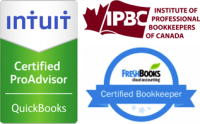Last week we discussed who could benefit from, and the pro’s and con’s of, opening a Registered Retirement Savings Plan (RRSP)
This week will be looking at a Tax Free Savings Account (TFSA) in more detail.
A TFSA is probably the most misunderstood type of savings account due to the amount of misleading information that is provided by various “professionals” so we hope this post will help you gain a much stronger understanding.
Tax Free Savings Account (TFSA)
What is an TFSA?
As the name suggests a TFSA is an account that allows you to earn TAX-FREE gains on your savings. As a Canadian, you can invest up to $5000/year (of taxed earnings) into a TFSA, withdraw money at any time TAX-FREE and you can also re-contribute any funds that you have withdrawn over the course of a year in the following calendar year.
In our opinion, it is the best investment tool available to Canadians and many investment advisers and accountants agree, preferring TFSA’s to RRSP’s.
The best way to utilize your TFSA is to invest in the highest risk investment that you can tolerate. Your level of risk should be determined by the amount of time you have to invest. Before you make any leaps into high-risk investments we advise that you consult a professional.
Pro’s and Con’s
Pro- You have the opportunity to make significant gains. For example: One broker we spoke to has reported that the largest TFSA at his firm, that is worth over $2,000,000, was generated over four years ($20,000). That is an earning of $1,880,000 TAX-FREE.
Now, this type of gain is by no means standard but it does demonstrate the type of potential that investing in the right type of TFSA can have.
Con- Not every TFSA is designed to give you a good return and you need to talk to an independent investment advisor if you want to find the best product (Contact us for a referral to a quality advisor). This can prove costly however, it is worth the investment as there are a lot of TFSA accounts, set up through banks, that only give you pennies each month due to the conservative nature of the investment.
While you are earning the same amount on your investment as a person who keeps their money under a mattress and considers the change they find in their couch interest. The bank is investing your hard earned money to grow their profits.
Who is a good candidate for a TFSA?
EVERYONE. They really benefit all Canadians with money to save.
Who is not necessarily a good candidate for a TFSA?
The only reason you shouldn’t have one is if you don’t have any savings to invest.
If you need advice on TFSA or anything tax-related please contact us.
Stay tuned for next weeks post, which will discuss Registered Education Savings Plans (RESP’s)


